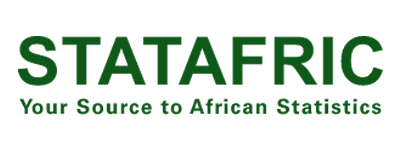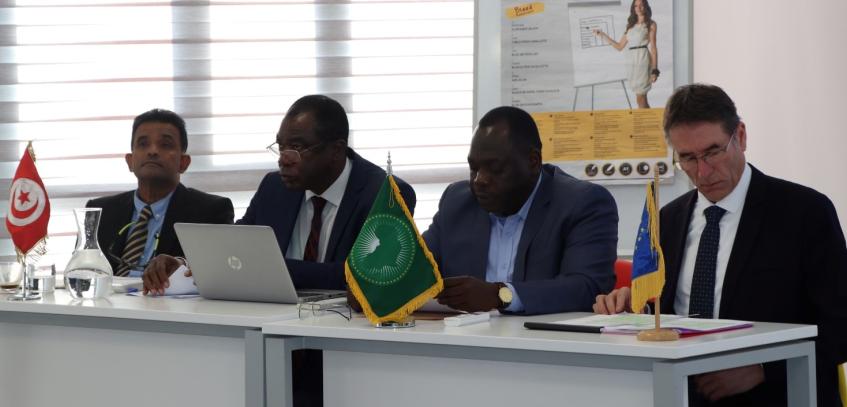Additional data sources to complement those from customs to improve African trade statistics. This was the theme of the workshop organised in two three-day sessions (English and French) under the Second Pan African Statistics Programme (PAS II) Service contract. International Merchandise Trade Statistics (IMTS) experts from 16 Member States of the African Union participated in this workshop in Tunis, Tunisia.
IMTS experts from eight English-speaking countries (Egypt, Ethiopia, Liberia, Mauritius, Sierra Leone, Somalia, Seychelles, and Zambia) and nine French-speaking countries (Cabo Verde, Chad, Comoros, Côte d'Ivoire, Guinea, Madagascar, Democratic Republic of Congo, Sao Tome and Principe, and Tunisia) participated respectively in the English and the French session of this workshop, which was facilitated by Mr Thierry Coulet, the PAS II Service contract Key expert in trade statistics, and Mr Romesh Paul, the PAS II Service contract Senior non-key expert in trade statistics. The workshop was conducted in the framework of the PAS II Service contract, funded by the European Union, managed by Eurostat and STATAFRIC, and implemented by Expertise France. Both sessions were held on Expertise France’s premises in Tunis, Tunisia.
Identifying potential data sources
The workshop took stock of the situation and challenges faced by countries in using data sources to complement customs data. A range of potential data sources was identified to accurately cover specific goods and transactions in the compilation of IMTS. In addition, participants discussed methods to establish cooperation with these additional data source producers. Finally, national roadmaps were developed for the use of additional non-customs data sources in the compilation of International Trade in Goods Statistics (ITGS).
Focus on special transactions
Special transactions and specific goods and movements represent a significant part of the international trade in goods of some AU Member States. These special transactions include processing trade, sales to and purchases from individuals, distance sales, waste products, goods under the financial and operational lease, call-off, industrial plants, staggered consignments, and postal and express consignments. Specific goods or movements include transactions on vessels and aircraft, goods delivered to vessels and aircraft or to offshore installations, sea products, electricity and gas.
Recommendations to use registers in the compilation of ITGS
The workshop recommended that statisticians use customs records as the main data source. However, these data shall be supplemented by information obtained from other sources such as business surveys and administrative records, to ensure full coverage of IMTS. An integrated approach to data collection should be taken, for instance, using business registers and enterprise identification numbers in order to minimise costs and burdens on enterprises.
Input from national experts
National experts from the participating countries presented the state of play regarding the use of non-customs data sources in their countries, including challenges associated with the use of such data. Presentations were also made on cooperation agreements established with non-Customs data producers and existing data-sharing mechanisms for compiling IMTS.
Other regional workshops are planned under the PAS II Service Contract
This gathering is the first of a series of regional workshops to be organized under the PAS II Service contract, seeking to increase the quality of trade, national accounts, and agricultural, environment, and climate change statistics throughout the African continent









